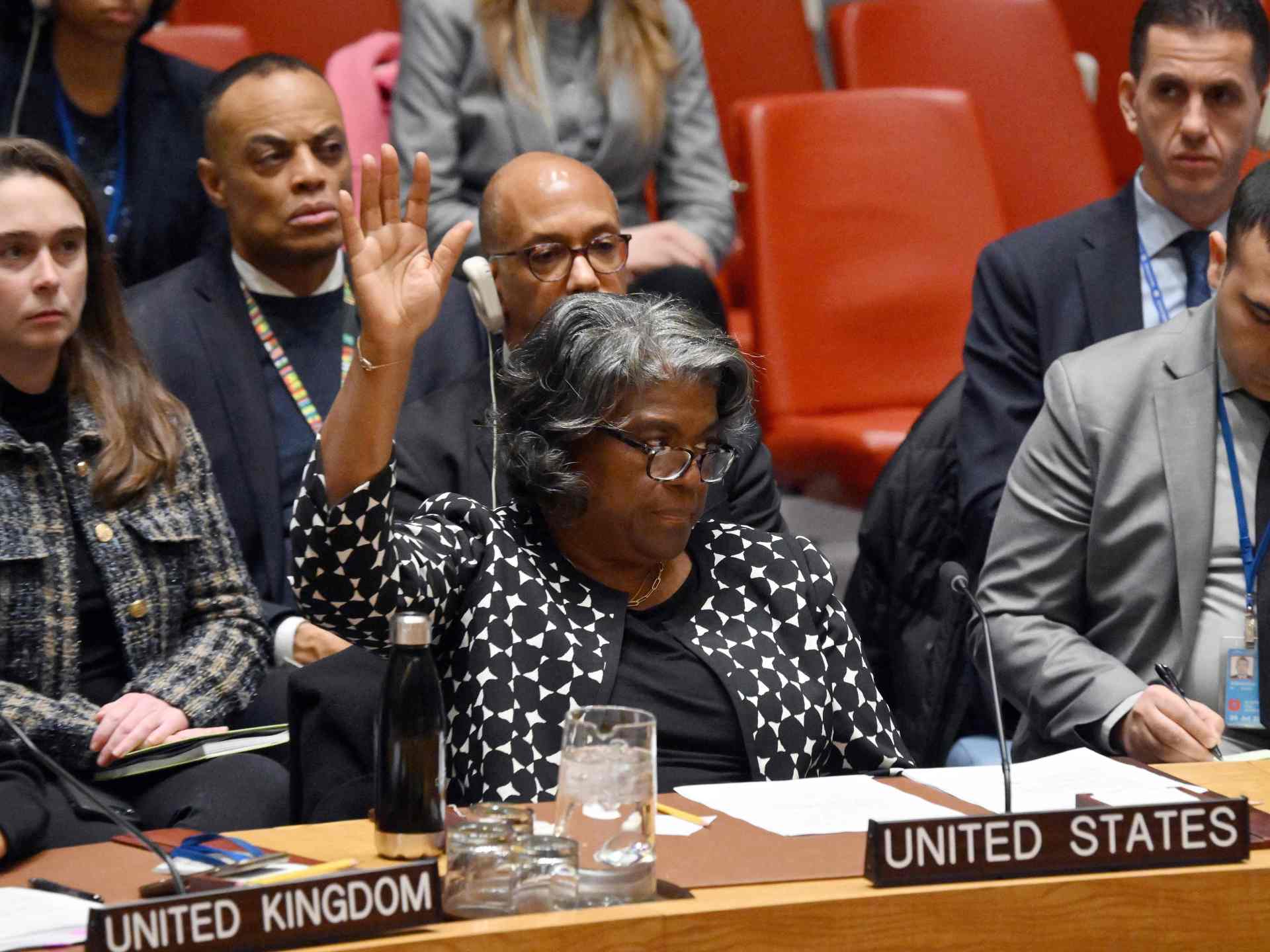The United States used its veto several times to prevent condemnation of Israel in the UN Security Council (French)
A report published by the American “Counter Punch” website confirmed that the Gaza war puts the world before an unprecedented challenge regarding the relationship of governments with international law, and their obligations towards international institutions, such as the United Nations, the International Court of Justice, and the International Criminal Court.
Writer Ramzi Baroud explained that the United Nations was supposedly founded in 1945 in order to maintain a degree of international consensus, but it was clear from the beginning that it did not reflect the desires of all people.
On the contrary, it was organized based on a hierarchical model of power, in which the victors of World War II emerged as the masters, granting themselves veto power and permanent membership in the United Nations Security Council.
As for the serfs, they were appointed to much less important seats in the General Assembly, Ramzi Baroud said.
The writer explained that in order to "survive" in light of the inequality of the new international order, the smaller countries worked together to create alternative political bodies, albeit smaller ones, within the larger institutions, and they tried to exploit every margin to represent the rights of the world's poorest and most oppressed countries.
The Non-Aligned Movement, founded in 1961, was one of many examples that was a success story, if only in a relative sense.
Special legitimacy
Over the years - the author continues - the United States and its Western allies have formulated their own version of “legitimacy” in the way they interpret international law, and the way they veto United Nations resolutions whenever it does not serve their interests.
He stressed that during the Soviet era, the United Nations and its relevant institutions seemed balanced, even if only formally, as the world was divided between East and West, which gave the Non-Aligned Movement and other organizations and alliances, most of which are based in the Global South, a reasonable political value.
The writer continued that things changed later, as the Soviet front collapsed in the early 1990s, which led to the collapse of the power model that allowed Moscow to maintain balance.
On the other hand, China emerged strongly in the picture, and its influence began to strengthen over time, thus gaining legitimacy from countries that had become dependent on the Chinese economic engine.
consequences
But what has not changed is the United States’ continued defense of Israel, and just a few days ago, the United States Ambassador, Linda Thomas-Greenfield, raised her hand for the fourth time, on February 20, using her veto power again, thus rejecting the Algerian call for an immediate halt. To open fire for humanitarian reasons in the Gaza Strip.
Even in the International Court of Justice, when the whole world defended Palestinian freedom, the United States opposed this and defended Israel.
Ironically, the United States turned to these various institutions, including the International Criminal Court, of which it is not a member, to cover up its actions.
The writer emphasized that all of these choices will have consequences, and the coming years will prove that the crisis of international legitimacy, resulting from the abuse of power, will not be corrected with superficial changes and reforms. The problem has now become deeper and more dangerous, and the price has become so high that it cannot be borne.
Source: American press

